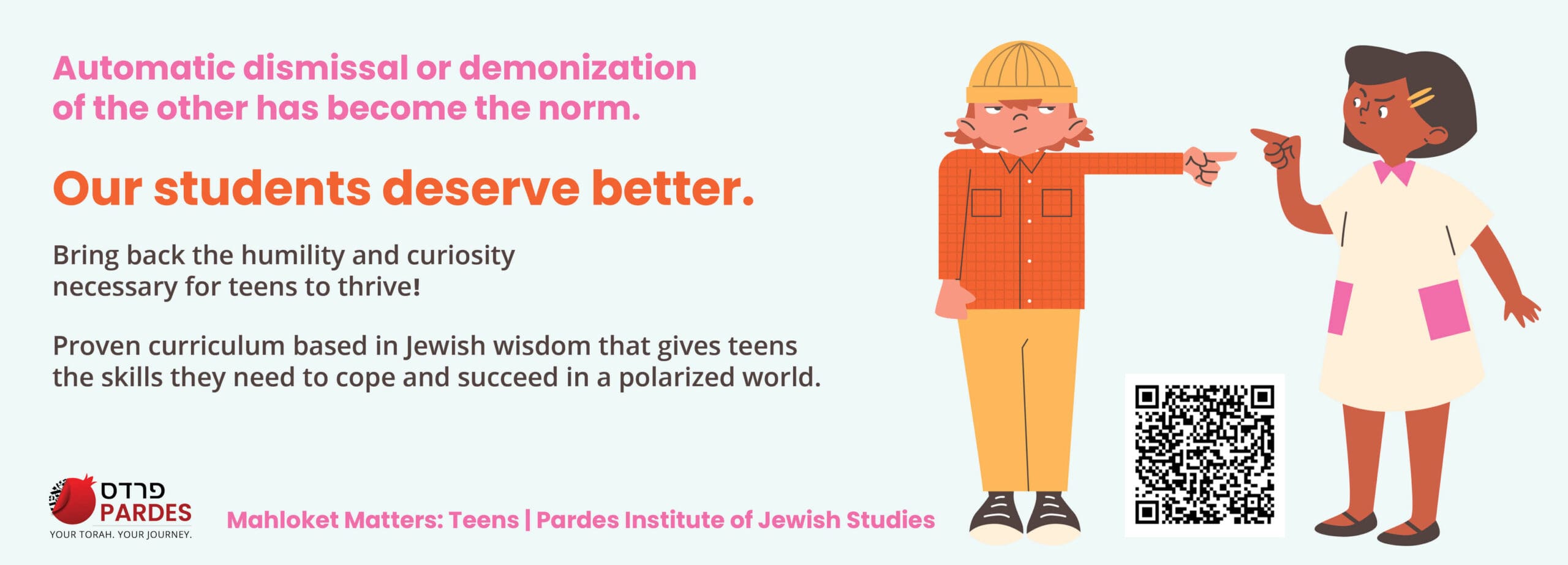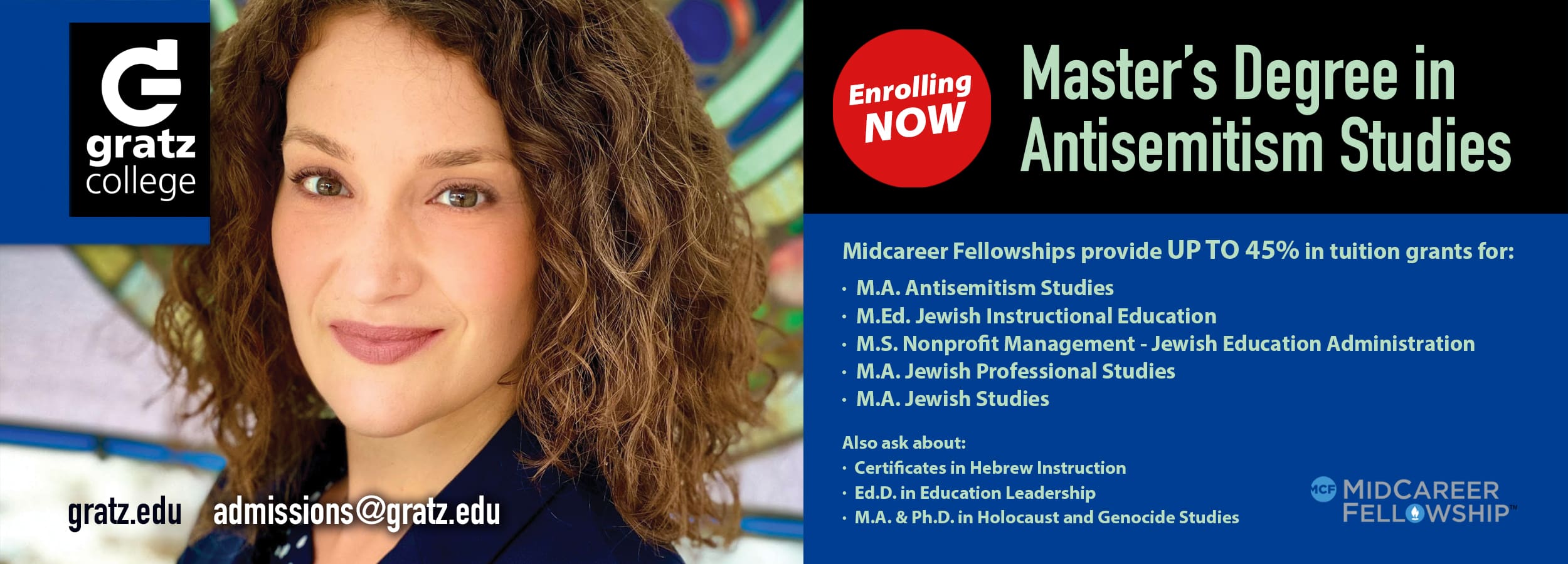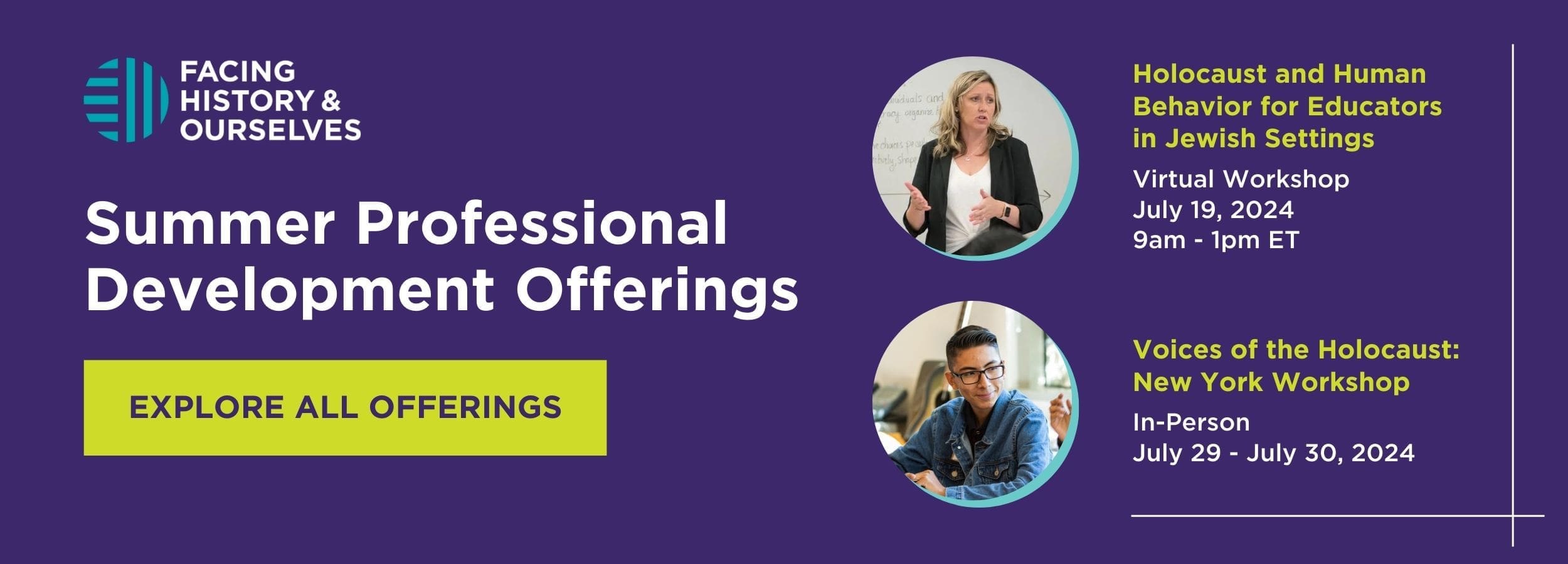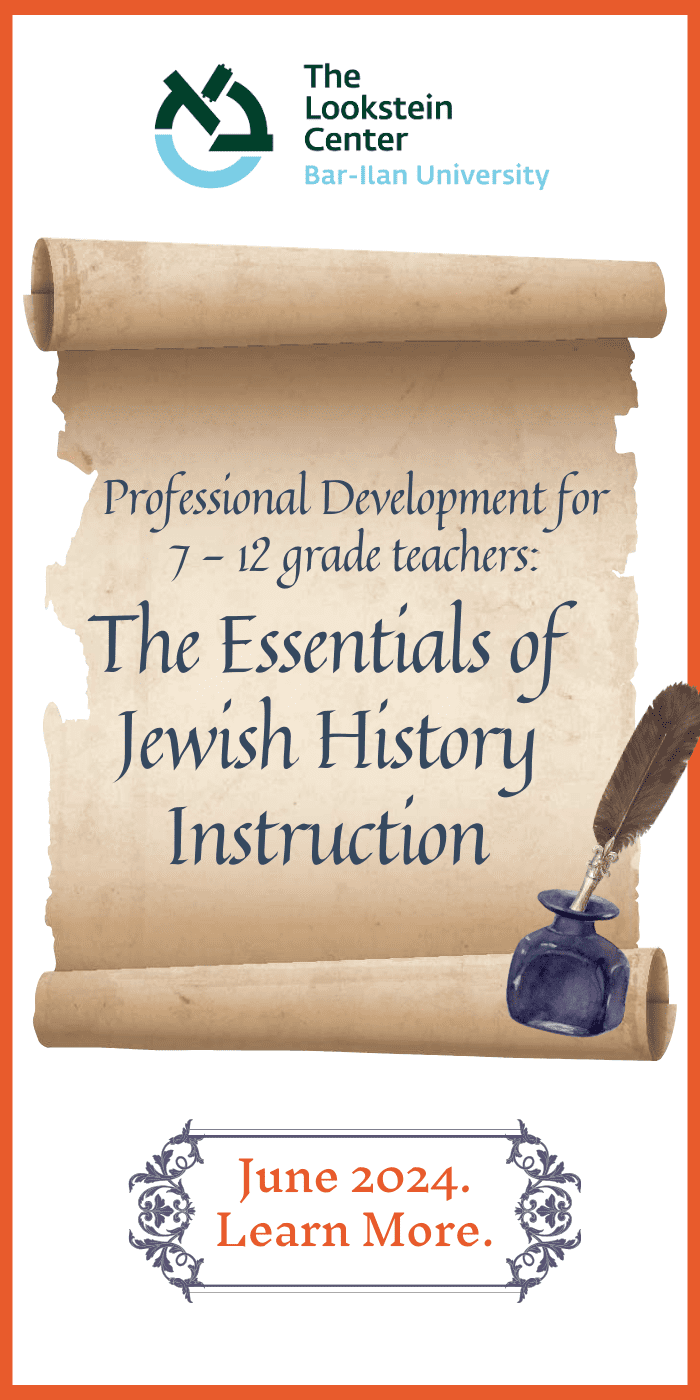Ahavat Yisrael in a Small Jewish Community: an Interview with Tania Schweig
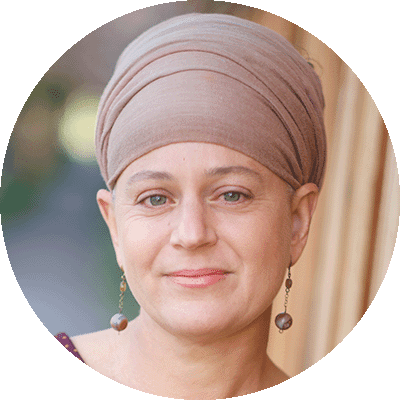
Tania Schweig, M.Ed. is the Head of School at Oakland Hebrew Day School in the California Bay Area, with over twenty years experience in Jewish educational leadership, curriculum and program development. Passionate about the importance of inclusive and supportive school communities, Tania and her team take pride in the ongoing work of developing a Modern Orthodox school culture where Jews of every kind can feel that they belong.
Jewish Educational Leadership: Can you share with us a little about your school and its community?
Tania Schweig: We’re a small community and our school has about 165 students. We’re quite stable in our enrollment and there are those who come and go because of the university. I feel like there’s a tremendous importance in small communities like ours and also a tremendous gift in these small communities. And I think our community has this special quality of ahavat Yisrael (love for our fellow Jewish people). I think that it’s important to say this because it is connected to the work of diversity. I really appreciate—like genuinely love—diversity. I like being in a place where it’s safe to be all kinds of things; it mirrors my own path. When I was in Pardes in Israel, I got to choose my path, I didn’t want to be in a box measuring up to someone else’s standards. For example, I wanted to be the person who’s becoming observant yet who is also asking questions about feminism.
We’re a Modern Orthodox school that has a small number of interfaith families We’re not in the business of being mekarev people (drawing them closer to religious observance); I understand that an interfaith family is different from an Orthodox family or Conservative family with two Jewish parents. I get that that’s not the same thing, and I’m not trying to make it all the same thing. While I need to make sure that our school is primarily composed of single-faith Jewish families, I’m happy to have some families fitting an interfaith profile. I’m proud to be a school with a family with two Jewish dads and to be a school where an interfaith queer family can also feel comfortable and connected.
Could you talk about why you are proud?
Such a good question, and I’ll tell you what I say to everyone who comes to look at our school—prospective parents, teachers—everyone. The Torah was given to every Jew, not more and not less to my family than any other. Our goal is to make that Torah, which belongs to the people already, available and accessible so that people have the option of becoming passionate about it. I just really believe in access, and maybe that’s just a very Berkeley thing to say, but that idea is very core to me, and I apply it to the Torah. The Torah does not belong to any individual or any denomination, it’s everyone’s Torah. The more that someone has knowledge of the history and of the language and has the ability to open up a sefer Torah, the greater their choices are in terms of what they decide to do with it. You know, I wasn’t raised with Torah access and I still have a huge barrier, so I just want to make it available to anyone who wants. Don’t they deserve to be able to access what is theirs, to get passionate about Torah? I just feel like the more access someone has, the more choices they have, I’m not going to tell them what they can do with it in their lives. But they deserve to have access to it, to be able to be passionate about it. That’s why I’m proud to make that possible.
What do you think the kids in the school get out of being in an environment that is welcoming and embracing of everybody?
I don’t fully know how to answer that question, but I can venture a guess. We get a lot of Israelis that come through our school, mostly because of the universities. These parents are intellectuals and scientists, who come through for somewhere between one and four years. We have one family who is just leaving; they just had their last Shabbat here. And what they said to me is what I’ve heard so many times. “Oh my gosh, we’re not going to find another school like this; we wish there was a school like this in Israel. This has been a transformative experience for us.” That’s what we hear from people regularly once they move to another area, even a place with more Jewish resources. They really appreciate our culture which makes everyone feel welcome, in which there aren’t the boxes of insiders and outsiders. That difference—the lack of labels that are so often used to pigeonhole people as being “us” or “them”—allows us to breathe, to be more free to connect, to be who we are without needing to conform.
I’d like to go back to something you said earlier, that you were happy to have representation of interfaith families in the school but that you also need to protect the single-faith character of the school. There’s a tension there. Is there a policy regarding new applicants? Do you have to turn some people away to maintain your identity as a Modern Orthodox school?
We wouldn’t turn someone away by saying, “ Oh, sorry, we’ve already filled our quota of interfaith families.” The reality is that we have a limited number that come to us, and when they do come, they need to be mission-appropriate, knowing that this is a Modern Orthodox school, not a community school. And that’s part of why we don’t have so many interfaith families coming to us. Similarly, if they came looking for what a community school offers, I don’t think that they would be happy here and I would let them know that I don’t think that it’s a good fit. The fit is really important. The mission alignment part is really core. That’s true on the other side as well. If let’s say, there was an Orthodox family that couldn’t handle our acceptance of gay students or two-mom families, then that would also not be a good fit. So the mission alignment is really important.
When does the mission that you’ve established here become challenging in the school?
In the Bay Area, people talk about diversity all the time. Whether you’re talking about it or not, it’s the topic. Sometimes families might say to us, “Oh, but what about diversity? We’re not sure we want to put our kids in a school where there isn’t so much racial diversity,” or something like that. Now, that’s a fair thing to want. But when you ask what are the diversities that really challenge us, I’m not convinced that in the Bay Area race and ethnicity are the differences that challenge us to our core. Sharing community with people whose politics are very different from ours or with people whose economic status is very different from ours, can be challenging distinctions. These are things that are not on the outside that make it tougher to feel safe and comfortable with each other, and that’s where we get the most challenge. It’s also where we give ourselves the least kind of push and we do the least skills work with ourselves as a society overall. There’s so much work being done on racial and ethnic diversity, which is important, but I don’t think that we’re doing enough work on the other areas I mentioned, and that’s where we get different kinds of clashes.
I see tensions in our school, whether they’re spoken or unspoken, around people who perceive themselves as having fewer economic resources—and that can include those few who are really scraping by, but also the middle class, the professionals who are “house-poor” in this very expensive place to live. There are also gaps between those who have extensive education and those who have significant education gaps, and that creates clashes that play out in community building. And because two of our feeder synagogues are Orthodox, there tends to be a lot of Shabbat socializing that is geographically based which can impact the social connections between families, meaning that people who see each other informally on Shabbat may not end up spending as much time building connections across geography.
That’s where we work hard with welcoming committees and belonging and trying to find out what people’s needs are.
Then there are these other diversity tensions. I would say that most of our families tend to lean left in the progressive-conservative spectrum, and that includes many of our Orthodox families. But there is also a vocal minority of families who—perhaps because they are in the Bay Area—are extremely sensitive to anything that sounds “woke” and may push back against certain curricular decisions because they feel like a vulnerable minority within the broader political culture of this area. It’s complicated.
How does all this filter down to the kids in the school socially and educationally?
I’m glad you asked that because I feel like that’s the most important thing; that’s who we are all protecting. In the effort to accommodate the full range of parents, we often find ourselves navigating to what I call the “unsexy middle,” which can feel pareve, non-committal, and lacking direction. This is a challenge we are working on, both through the formal curriculum and the informal programming and through all of the verbal and nonverbal ways that informal education happens, the signals we give that are not formalized. This includes who our teachers are, whether or not we can read a book in the month of June about Harvey Milk and the history of the rainbow flag, with a class that includes a boy who has two fathers. Again, we make these decisions with great deliberation, including turning to the rabbi who has been charged with guiding us on these types of issues.
Do you have any official policies about these things?
A few years ago, we did a huge amount of work in collaboration with the two Orthodox rabbis in our community who serve the two main shuls. We spent countless hours in meetings which produced a huge volume of notes. We met with three poskim (senior halakhic authorities), a Rosh Yeshiva, and many different Heads of School, and walked away feeling like we really did a thorough job and were comfortable moving forward. And then, partly because of fear and uncertainty about how to go about it, even though we had done the work, we were not fully ready to share our thinking in the form of a policy.
And then I had this conversation with another Head of School who I respect tremendously in which she said something very beautiful. She said something like this, “I never formulated a policy for ADHD kids. I never formulated a policy for gifted kids. I don’t have a policy for kids with dyslexia. So why do I need a policy for trans kids? Kids have needs when they come into a school, some kind of extra support—emotional, learning, identity, whatever. You need to make sure that you have a good partnership with families and know that you have the capacity to be supportive. If they need a therapist and you have one—great. So if you have a kid coming in who’s going through a transition, most likely having a therapist involved is going to be important, making sure the parents are good partners is important, whatever it is, you need to make sure that you have all the pieces in place, just like with any other unique situation that’s outside of what’s normative. But what you don’t need is a policy.” So, after a lot of processing, we’re thinking about this as a values-based decision: we educate children, we’re here for children, we’re here for Jews. If it’s a mission-aligned family that understands that we are going to think about this from a holistic perspective, including admitting them into our school and supporting their child’s gender identity, they also understand that this may necessitate our asking a number of halakhic questions.
Earlier you said that your school is Modern Orthodox but your goal is not to make everyone else Modern Orthodox. So what are you trying to accomplish and how does that fit with the school’s identity?
First, I need to point out that we are a small community. I don’t know what we would look like if we were in a large, dense community like NY. What it means here is that we put equal emphasis on our Jewish studies and our general studies. There is tefilla every morning. There’s a lot of Hebrew and Tanakh, and every student gets exposed meaningfully to Torah SheBe’al Peh (the Oral Law). And we believe that there is integration between the Jewish and the general studies so that the skills that the child learns in all those hours of Torah studies do not come at the expense of their general studies but will serve them well in any environment they move on to. And, of course, there’s a strong valuing of the importance of Torah education.
You briefly mentioned politics earlier. That can be especially divisive, both domestic politics and politics revolving around Israel. How do you manage that and the potential conflicts?
Love of Israel is really, really central to our school, and the families are generally strongly supportive. Every once in a while, there is someone who feels like they’d like us to present left-wing perspectives on Israel, but I suspect that our orientation is influenced by the reaction to the overall feeling in the Bay Area, which is an epicenter of anti-Israel activism. So, the school has become a safe space for unapologetically loving Israel. With complex events in Israel, we do our best to give students factual information and to make space to respond to their questions. And we are clear that we will always stand with Israel when Israel is attacked. Educationally, I sometimes worry that our students will leave us and be so pro-Israel that they’ll not be quite sure what to do with some of the other voices that are out there. And I believe that we should be teaching our kids to think, not simply fill their brains with the attitudes that we pre-determine for them. I really want to see children grappling, I want to see children being able to really take on a different perspective from their own with real curiosity. That approach defines so much of what we do, including in our Jewish studies. Pedagogy of Partnership’s model, arguments for the sake of heaven, using evidence to support opinions, these are antidotes to the craziness that’s out there. That is our curricular and pedagogical approach.
It sounds like the culture in your school—from the lay leadership to the parent body to the rabbinic advisors to the educational leadership and the staff is quite open. One of the challenges in an open environment is to become passionate about being Jewish. After all, if everything is OK, what is there to be passionate about? How do you deal with that?
I don’t understand that dichotomy. Why would my love of Torah and mitzvot or Shabbat be somehow impacted by whether or not a person who is queer/from an interfaith family/with different levels of observance/etc. can be part of my community? To me, that doesn’t make any sense. The openness of a community of people being allowed to belong has nothing to do with my personal practice of or love for Judaism. In fact, I think that the community’s ability to welcome many different kinds of people would only deepen my passion as it would unquestionably confirm that there’s a place for me, and there’s a place for my friend. In the process of thinking about these issues, I spoke with one head of a high school who explained that when he allowed a Gay-Straight Alliance in the school it was not just for the gay kids, but the straight ones. He said that we live in a time when a straight kid says, “If there’s not a place at the table for my queer friend, then this is not for me.” The kids don’t want their queer friends excluded, and if the community can’t include them then they question its core values. This is a different generation with different needs. For me, too, for me to feel like I have a place here, I need to know that others I care about also have a place.



Reach 10,000 Jewish educational professionals. Advertise in the upcoming issue of Jewish Educational Leadership.
Do you want to write for Jewish Educational Leadership? See the Call for Papers for the upcoming issue.
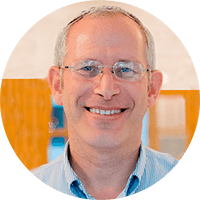

FROM THE EDITOR: SPRING 2024
In the 1970s, UJA’s rallying slogan was: “We are One.” Indeed, those were the days in which the Jewish community banded together over three core principles—commemoration of the Shoah, saving Soviet Jewry (and Syrian Jewry and Ethiopian Jewry), and Israel. The past fifty years have eroded each of those. People are tiring of the Shoah and are eager to move on from what Salo Baron termed the “lachrymose conception of Jewish history.” Soviet Jews left en masse in the 1990s with the fall of the Berlin Wall and the collapse of the Soviet Union, and Jews of Syria and Ethiopia have mostly migrated and resettled as well. And Israel, which is itself grappling with unparalleled polarization, no longer serves as a uniting factor for many North American Jews. All this leaves us, fifty years after the UJA banner, with a dramatic shift in punctuation:
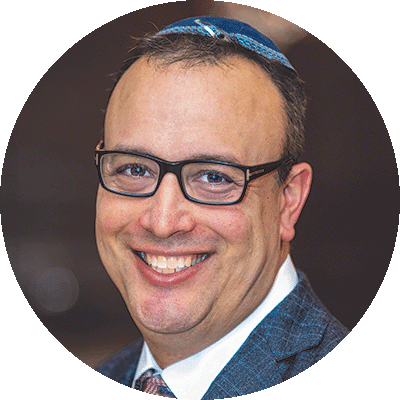

Accepting and Representing the Greater Jewish Community: an Interview with Jonathan Levy
We represent the Greater Toronto Jewish community, which means what we see in the Greater Toronto Jewish community is what we want to see here at our school. That can mean the whole range of diversity. It can be religious backgrounds, it can be a physical disability, it can be academic challenges. Of course, we do have limits in terms of what we can do and what we can’t do. We can’t be everything to everybody, but our goal is to be a diverse community that represents the Greater Toronto community. If you see it out there in the Toronto Jewish world, hopefully, you will see an element of that in our school as well,
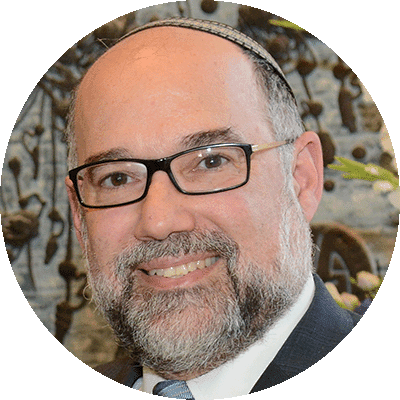

Realities and Opportunities of Diversity in an Orthodox School: an Interview with Leonard Matanky
I see diversity as a reality. Because our schools have always been diverse, the question is, how diverse should our schools be? On the one hand, we can talk about tribes, every tribe had its own personality, and those personalities didn’t always mesh so beautifully, like the way that Yissakhar and Zevulun are often presented. So, I see diversity as something that has always been present. I think the one challenge we have, when it comes to the question of diversity is the very same kinds of things that Jonathan Haidt talks about when he talks about the moral foundations theory and how we view that diversity within a religious institution. And so, our school has always been a diverse
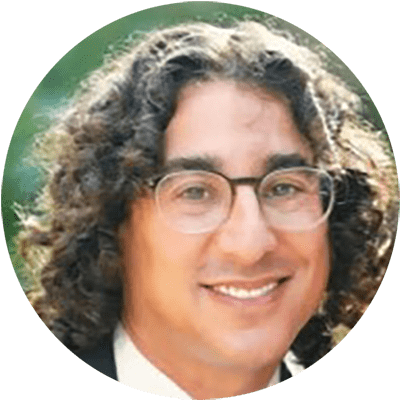

Aspiring to Expand our Circle of Inclusion: an Interview With Jon Mitzmacher
The opportunity is to ensure that our students come through their experience with an opportunity to learn about and learn with those who may be different than themselves, different across a variety of categories, whether it’s socio-economic, whether it’s learning differences, whether it’s with ideological differences, the value is in experiencing themselves as part of a diverse kehilla. The challenges, I would say, are divided into two broad categories. Most of the kinds of diversities that are challenging for schools boil down to economics;
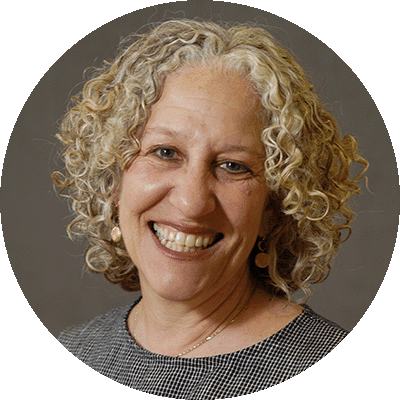

Embracing Diversity, Building a Stronger Jewish Future: an Interview with Nicole Nash
I’m going to start with opportunity because, to me, the opportunity outweighs any challenges. I’ve been in the field for a long time, and when you work in Jewish education, you meet so many children, parents, faculty, staff, and community members. I’ve had the privilege to see just how diverse the Jewish people are. When we are at our best, our diversity can be a real source of strength and celebration of Jewish peoplehood. When I say diversity, I think about it across ethnicity, race and nationality, Jewish identity and practice, interfaith family composition, sexual orientation, gender identity, life experience, socioeconomic status, worldviews—the list goes on and on.
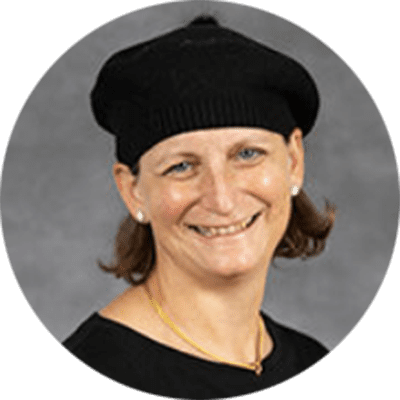

Cultivating Individuality and Cultivating Belonging: an Interview with CB Neugroschl
Diversity is both a deeply meaningful value and also a pop language word that means many different things to different people. When I was a Jewish philosophy teacher, diversity in our curriculum was about the relationship between Jews and non-Jews and about how we understand Hashem’s mission for both. When I speak about diversity today here in Teaneck, I recognize that we are talking about a very tiny slice of the diversity pie. The reality is that we are an all-girls Orthodox high school serving a fairly homogenous community. Of course, there are going to be nuanced differences, but the bottom line is that all those differences are within a fairly narrow band on the spectrum. So, here’s some background on where diversity is important in our context.
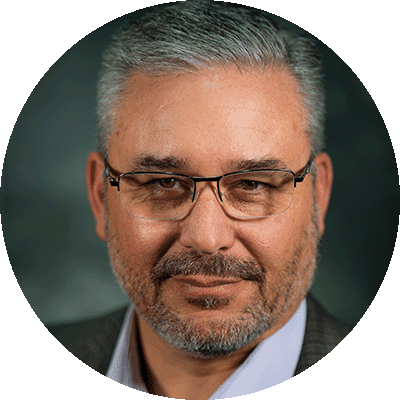

Diversity, Kindness, and Developing A+ Human Beings: an Interview with Mark Shpall
I try not to see it as a challenge. I really do see it as an opportunity because our students will continue to grow and go off to college, where they are going to be exposed to the real world, working with and interacting with people of all different backgrounds, ethnicities, learning abilities, appearances, etc. So we have the opportunity here to start or continue to process being open to that. We really try to do that from day one. In fact, we start school a week from today, but we are doing our retreats for our ninth and tenth graders starting now. Those retreats are all about the process of students opening themselves up to others in different ways and in different formats. We talk to our students about our core values, we want to talk about them so often that they start rolling their eyes at us because
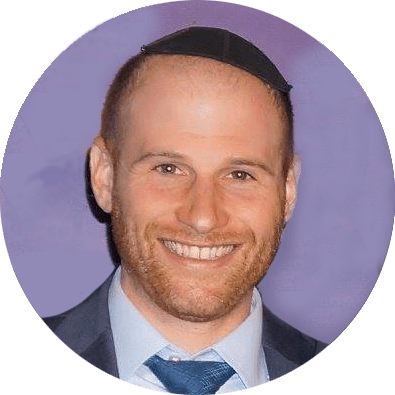

Compromise for the Sake of Community: an Interview with Sam Weinberg
I think that it’s important to remind ourselves that our diversity is defined in fairly narrow terms. We like to say that we are diverse, and that means that we span from traditional Conservative to right-wing Orthodox. Within that range, we like to celebrate our diversity, and that means that we can all learn from each other. That can be a challenge, since some in our community are very cautious about, if not openly hostile to, the idea of learning from those outside of their own group. It wasn’t always this way; I see more separatist trends developing in the last ten years, meaning that at least one segment of our population is growing increasingly insular. The community in general has become much more polarized, and some people only want to be with others who look and think like them.


